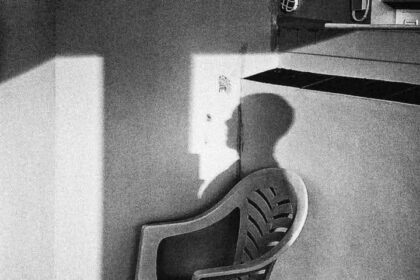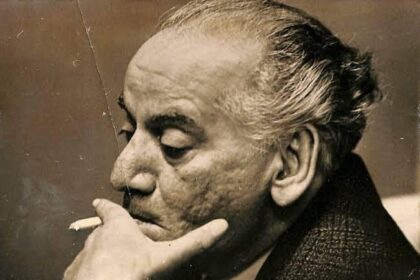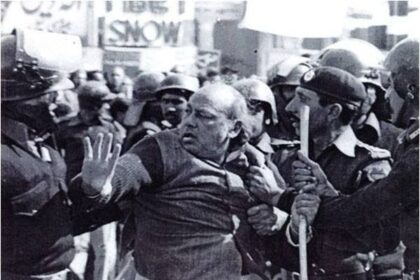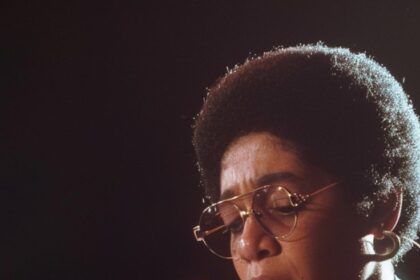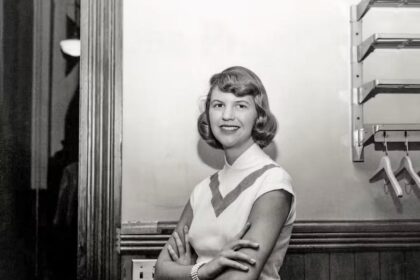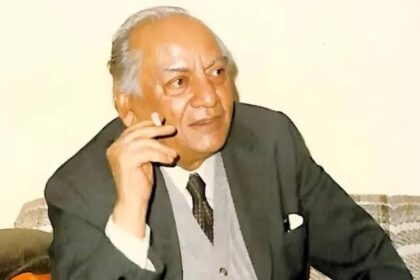I did not inherit his green eyes.
But I carry his patience—
tucked beneath my tongue like a clove.
His quiet,
his stillness,
the way he folds a newspaper
like it’s worth saving.
That, I carry too.
We speak in sips of chai,
about nation, history and dead leaders.
He tastes seasons through mangoes,
jamun streaked across his palm,
the tart of falsa still on his tongue
like an unfinished memory.
On car rides,
Jagjit Singh hums through the stereo—
his fingers drum the steering wheel
like he’s in a concert only we can hear.
And I—
I am still that little girl,
feet on the seat,
his palms outstretched like shields
between my knees and the stubborn itch of wild grass.
They say men of his time
love without saying.
He shows it
in the way he peels oranges,
removes each seed carefully,
quietly hands me the segments,
as I speak of things breaking—
dreams, friendships,
the way my chest feels some mornings.
And he listens.
God, he listens like it’s prayer.
Lately,
he stares too long at the TV screen
but his eyes are elsewhere—
perhaps back in the fields of his boyhood,
where his older brother
still laughs in the background.
Perhaps with his parents,
whose voices now come to him
only in dreams.
His neck maps new roads in wrinkles.
His hands—once solid as argument—
have grown soft,
like the end of a long sentence.
He never cries.
But he flinches
when I do.
He looks away,
like grief is something
a father must absorb
and never show.
Some nights, I wonder—
does he know
how much he lives inside me?
In the way I soften at sorrow,
the way I love in stillness,
the way I stay
to listen.
He does not know, perhaps.
But every time I taste citrus,
I think of him—
and it is enough.
Because inheritance isn’t just what’s passed down.
It’s what’s kept alive—
in the tone he says my name with,
in the soft pause after it,
like a comma made of love.
My name in his mouth
is not a thing of the past.
It’s a present tense prayer
I still believe in.
—Noor ul Taba







